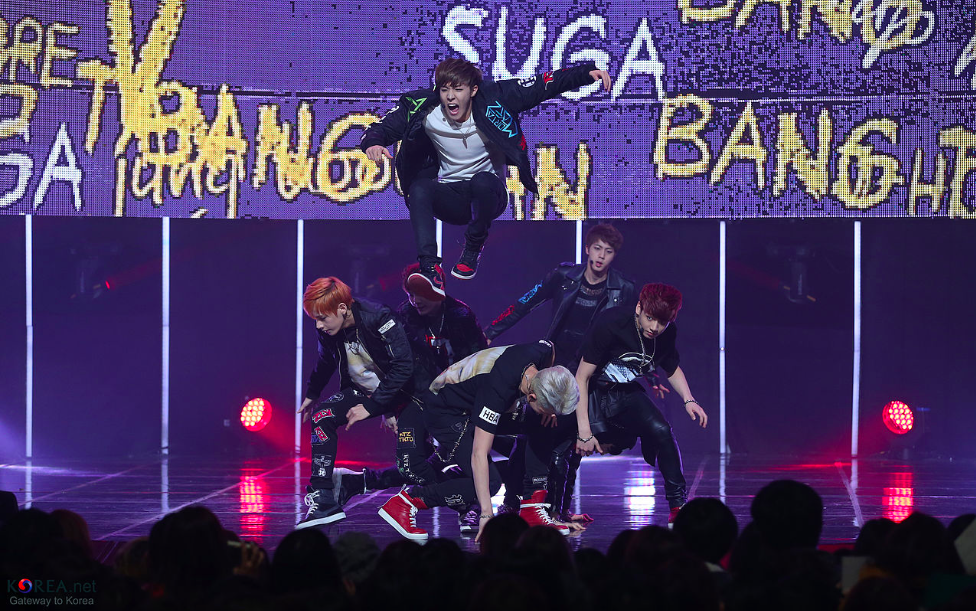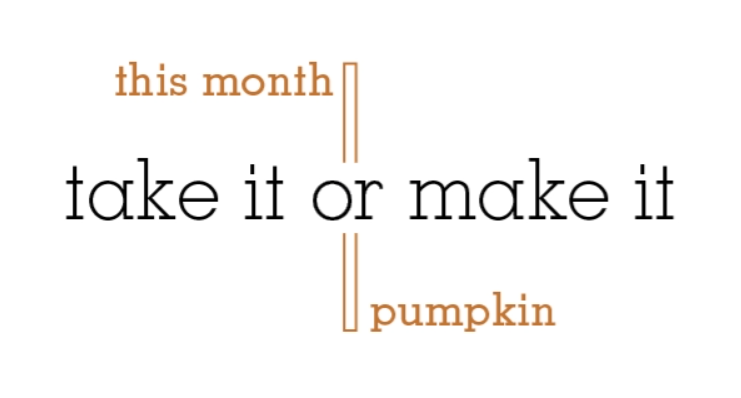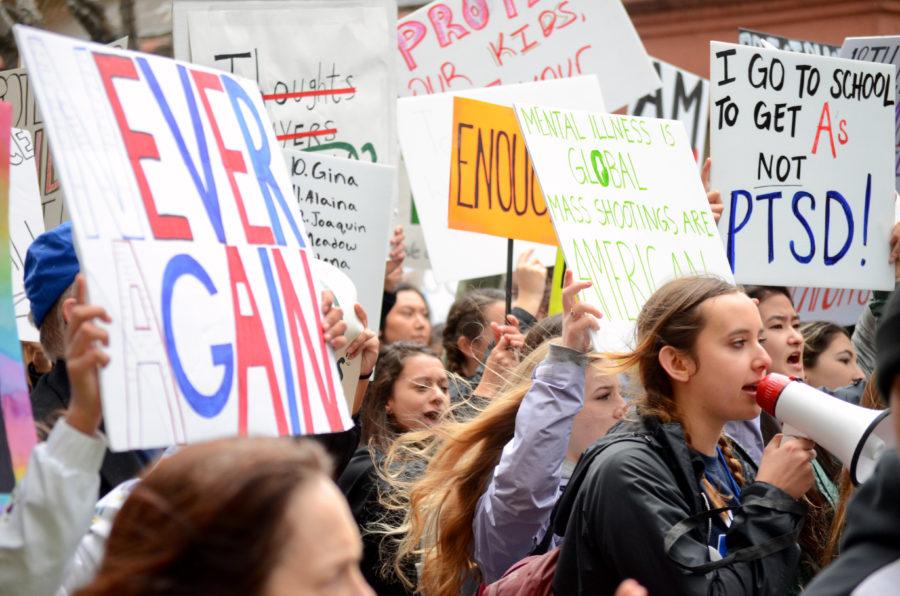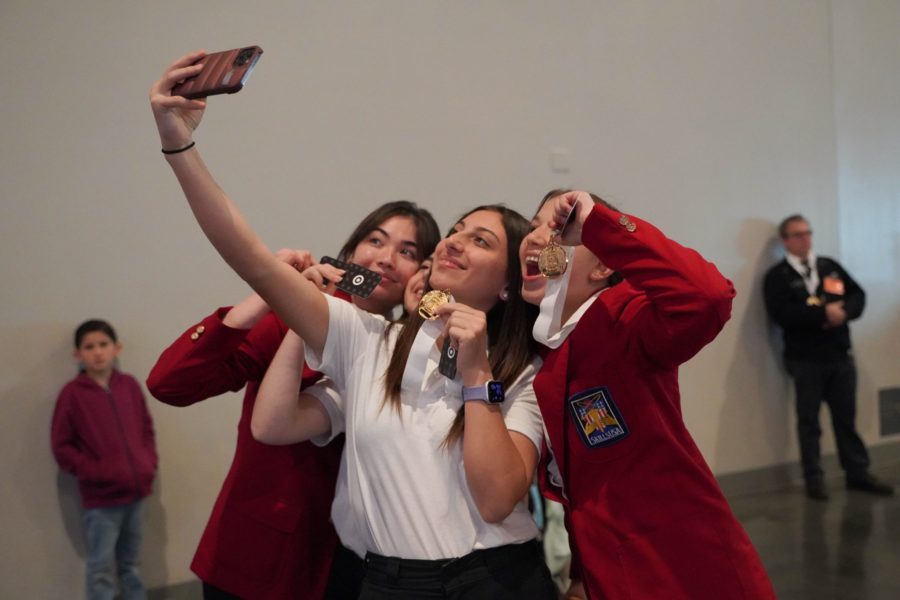Veronica Pahomova co-editor-in-chief
From the hard-hitting rap trio Migos, to the recently debuted KPop sensation BLACKPINK, all the way to country’s very own Blake Shelton, music can be found as the topic of numerous discussions worldwide. The average American listens to around four hours of music each day, so it is no coincidence that one may find students walking through the halls with their headphones–but according to the hall-roamers of the Norman Nation, it’s the sound that is being projected that truly matters and has an effect on the identity of an individual.

Whether the urge to listen to that certain song comes from a need to resolve an unconscious conflict or simply a desire for some tunes, everyone has their own unique music taste and coinciding reasoning.
Senior Nikki Melamed, for example, is drawn to pretty much everything “but country,” and states that music helps her in many situations.
“Music is basically what makes me happy. You can take it on the go and have it make simple tasks easier, or just sit down and let it completely envelop you,” Melamed said. “It allows people to come together and bond over a shared interest, and it also helps you get out of your own head sometimes.”
British sociomusicologist and Tovey Chair of Music at University of Edinburgh wrote in his book “Questions of Cultural Identity” that music plays a vital role in an individual’s identity because “it offers so intensely, a sense of both self and others, of the subjective in the collective.” Through an

individualized perspective, music can generate personal emotions and experiences, yet through a widespread view, music has also been known to have the power to draw people into “emotional alliances with the performers and with the performer’s other fans.”
When senior Nicole Mashoudy attended her first BTS concert only a few weeks ago in Anaheim, California, she gave a description of a unifying atmosphere within the crowd that illustrated the effects music has had on her.
“It was absolutely incredible. As if seeing one of my favorite groups of all time perform isn’t enough, the crowd mentality made it even more amazing. To be in a venue full of hundreds of thousands of people who are all freaking out over the same thing is breathtaking,” Mashoudy said. “To feel this kind of unity–like when you’re all singing along to “Not Today” or attempting to dance to “Fire”–with people you have never met before is insane and I’m so happy I had that experience.”
According to research from Pediatrics, popular music has been shown to have all kinds of effects on moods, behavior, social interactions and even schoolwork. Senior Yunchao Zhang, a fan and musician of classical and instrumental music, agrees with these observations, as well as reaffirms them with his own experiences.
“I think that with [instrumental music], there is such an enormous amount of room for interpretation and emotion. Listening to classical music is also a very active task, which I do enjoy; it allows me to relax after school, relieve stress and improve my own music-playing skills,” Zhang said.
No matter the group or genre, music holds an occasionally unacknowledged effect on the mind and soul–and, according to students like senior Eunice Kim, that’s what many in the Norman Nation feel like they have in common.
“Everyone listens to music; it’s honestly such a unifying part of my day. I’m always sharing headphones with my friends in the halls and dancing to songs on the radio,” Kim said. “My headphones are like…my best friend. I truly don’t know what I would do without music–and I feel like I could speak for most people.”
Rise of K-Pop in America, Norman Nation
Highlights takes a closer look into the K-Pop culture present in the halls, as well as the overall rise of the Korean music genre in American.
Necessity to end restrictions on musicians
Eleanor Bogart-Stuart culture editor
Musicians shouldn’t be restricted from dabbling in other professions–in fact, they should be encouraged. Those who have the strength and self-conviction to share their personal stories and intimate moments with the world through song are without a doubt more mentally stable and secure than most of the population. The ability to self-express, and self-express well, is an incredibly useful trait for all creative professions, not only music.
One of the most distinguished, yet disputed, examples of musicians breaking into other careers is Kanye West. A prolific rapper and industry staple for many years, West decided that he wanted to pursue a job as a designer of a clothing line he dubbed “Yeezy.” Many designers were upset that a rapper dared to enter the world of fashion. It’s true that after three years of controversial Yeezy seasons, it still seems slgihty unfair that his fame launched him to having instant New York Fashion Week appearances, a much-coveted opportunity for any fashion designers.
“It’s like we are David and he is Goliath. We have put our heart and soul into our show, and should not be stepped on like this,” designer Anne Bowen, whose NYFW spot was taken by West, said to Time magazine.
One thing, however, is certain: although impossible for West to ever fully shake off his “rapper” label, he has certainly made an impact on the fashion industry. The point is, West had a vision to offer that no one else had had yet.
Another successful artist who has tried other jobs is Donald Glover, better known by his rapper alias, Childish Gambino. Glover is not only a renowned rapper, but a well-known comedian and beloved actor thanks to his roles in “Community” and the critically-acclaimed “Atlanta”. His passion for artistic creation knows no bounds, and he certainly hasn’t let his rap persona act as a barrier to his ambitions. Time and time again, musicians prove themselves to be across-the-board adept at a range of artistic pastimes.
But these renaissance capabilities don’t only apply to creative professions. Many musicians in the past year, such as Katy Perry, Killer Mike (from Run the Jewels) and Beyonce, have taken an active political stance, attending rallies and giving speeches.
Most people are scared of change, and feel protected and comforted by things staying. A musician staying a musician makes people feel comfortable. Even when a musician dares to change genres, or even make minor changes to his/her sound, there is high probability for a massive uproar. When Dylan first went electric, people reacted as if an alien had been discovered. When Madonna came out with “Like a Virgin” the world were shocked to hear a household name so publically talk about her sexuality.
It’s clear that musicians are more than capable at many different things. I think it’s important, if you are a fan of a musician, to not shun him/her for wanting to try something different than music, but to support them and get excited instead. Whether it be a different genre, a different career, or a different message, musicians have their finger on the pulse of what matters. Trust them.


































